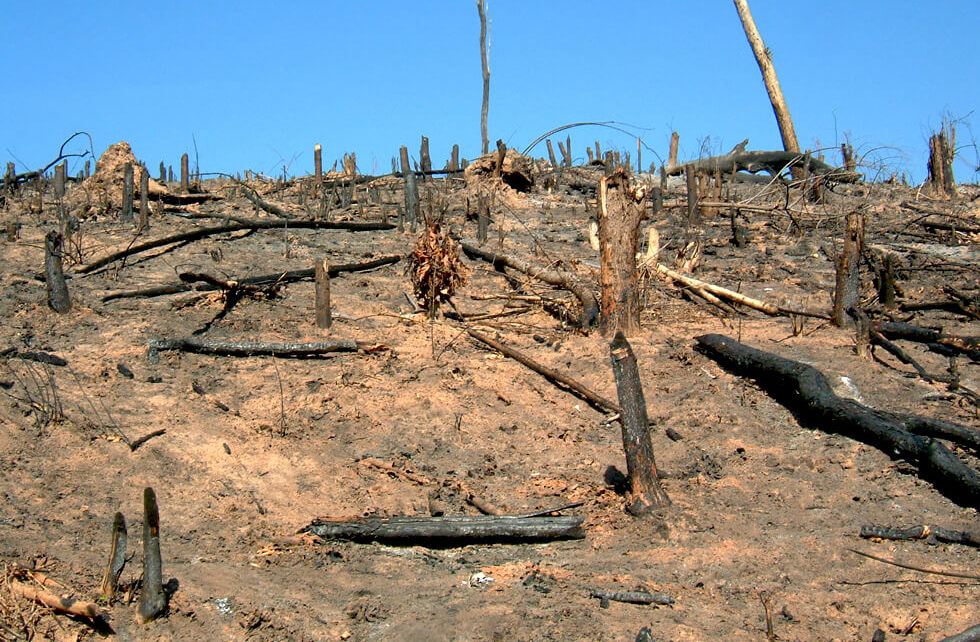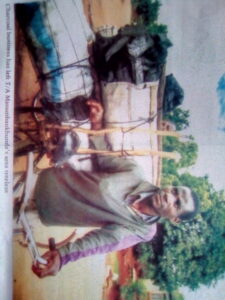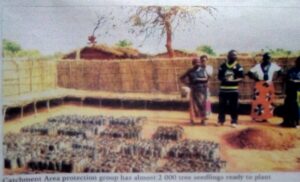
Some communities near Malawi’s capital, Lilongwe, have realised the ills of wantonly felling trees and they are now putting things right.
The households in Traditional Authority (T/A) Masumbankhunda territory are paying the price of massive deforestation which have left them mired in poverty.
The loss of trees to fuelwood and charcoal business makes the area prone to drought, heavy winds and soul erosion. And it has now dawned on the locals that tree-planting would help combat harsh affects of climate change.
Dishon Chilunje says most people in Chimphakati Village remain poor because of manmade problems. “Our community has been greatly affected by drought and flooding due to loss of treea,” said Chilunje, a foreman for Phalaza Catchment Area, which comprises 20 villages.
Public Works
The National local Government Finance Committee is piloting enhance public works programme in the area close to Dzalanyama Forest Reserve, the main source of water for Lilongwe. The locals under the programme are replenishing tree to deal with drought and soil erosion which fuels chronic hunger and poverty.

Chilunje says most of the farnland was bare and prone to floods, prolonged dry spells and other effects of climatic change. “It is no longer the green area we all knew. Most stretches are bare and people are now living hand -to- mounth as crop harvests keep dwindling,” he explains.
According to the 2018 census, 0nly 12 percent of Malawi population of 18 million have access to grid power and 98 percent of households in the country use firewood and charcool for cooking. This has left forests up to smoke. Every yer, the country loses about 25 000 hectares of forests to this unsustainable cooking menthods.
Chilunje says: “Trees are cut for producing charcoal for burning brinks to generate income, worsening the devastating impacts of drought, floods and soil erosion. Had we known, we would have explored other income generating activities but ignorance has cost us a lot.”
Now he counts himself lucky as change agents are sensitizing the communities to the dangers of cutting down trees recklessly.

The public works programme is also supporting them to reforest bare lands. The community established tree nurseries ready to ,ake the catchment area green again, Currently, Phalazi catchment area has 1 730 seedlings, but the locals plan to plant 20, 000 seddlings on one-hectare community forest.
“We have already started working on the forest. Soon, we will start plannting trees along dams, gardens and all areas surrounding our homes,” Chilinje said.
The beneficiaries of the orogramme receive cash for public works but commitment among the locals is growing as they now appreciate the importance of trees to their livelihoods and dangers of clearing forests.
Tereza Bezayi, one of the beneficiaries, says life had become unbearable due to chronic food shaortage that left grain prices skyrockening. She said most of herneighbours could not afford farm inputs, including seed and fertilizer to harvest more.
“A bag of fertilizer costs K21 000,” Bezayi explains. ” This is beyond the reach of most of us,” said the 40 year old woman. Madalitso Banda aged, 38, says due to the programme, people now have the power to lift themselves out of poverty.
Poor householes spend most time doing piecework in crop fields of well-off neighbours just to find food for the day. “It is now survival of the fittest. We hope that what we have started today will rescue us and tht we will have a change of mindset after what we are going through,” she said.
Lilongwe district commisioner Lawford Palani says it is encouraging to see communities eager to transform their livehoods by repairing the environment. He says government and stakeholders were investing a lot in disaster risk reduction, but lack sustainability and ownership remains challenging in many communities.
Hit hard
Polani said climate change disproportionately affects developing nations, making it more imperative for community to get involved in correcting their wrongs.
To show their commitment, communities in Masumbankhunda have also dug ditches and constructed marker ridges to harvest rainwater and retain sol moisture for crops. Phalazi catchment area comprises 82 are women nad 42 men who are setting an example worth emulating as deforestation slows the country’s development.
Source: The Nation_October 19, 2020_by Chimwemwe Njoloma
